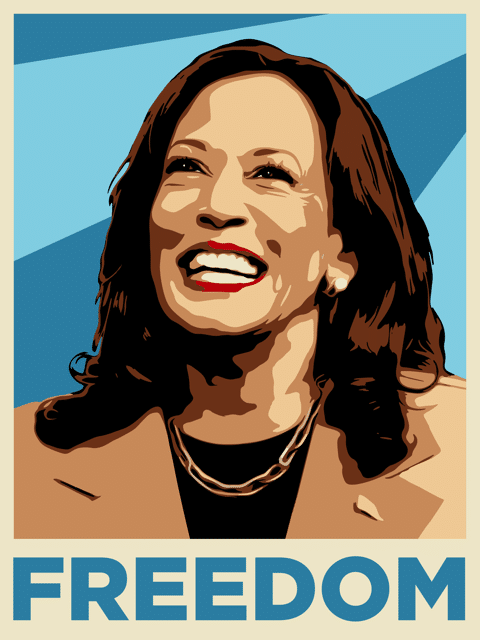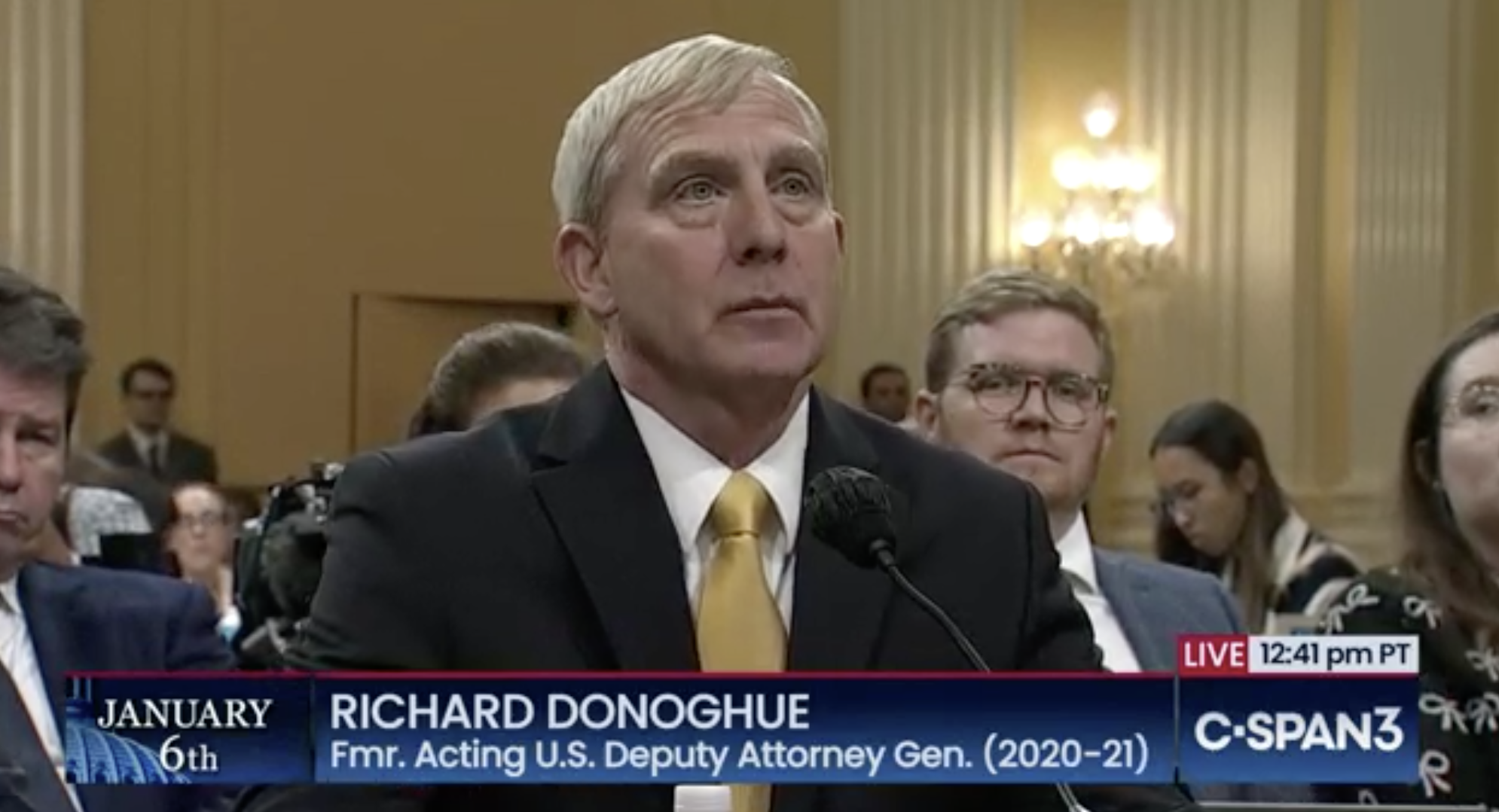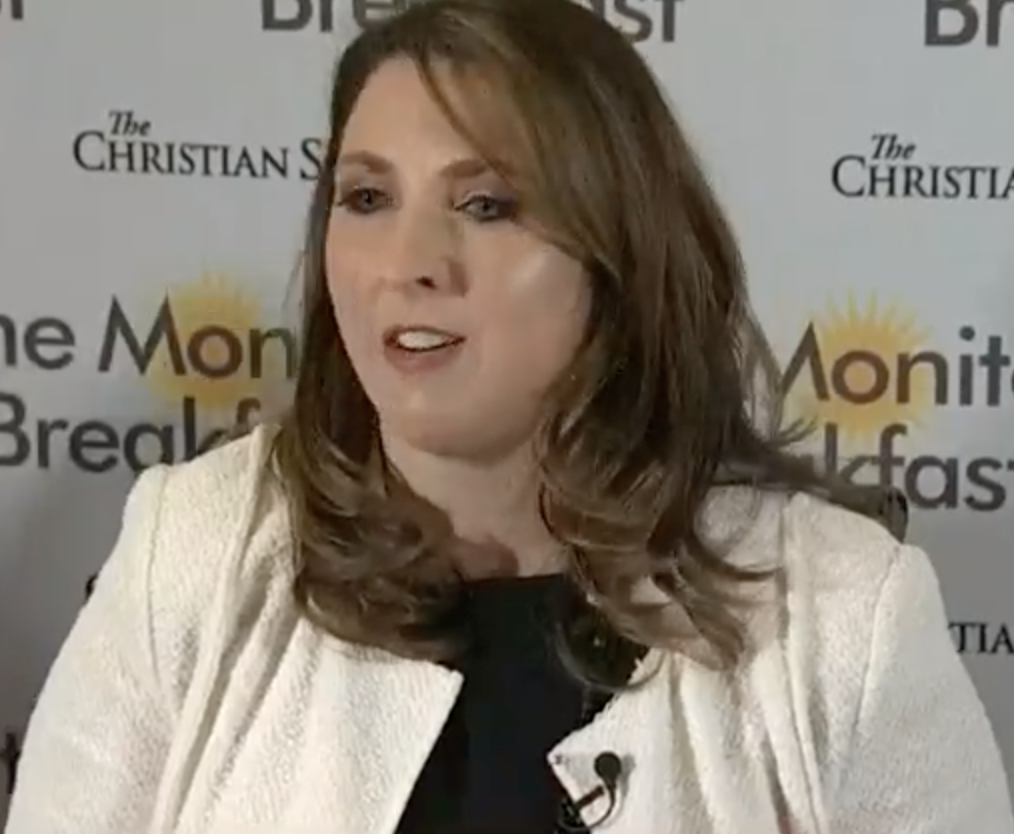To Become Leader of the Free(dom) World
At the start of the week, WSJ began a profile of Kamala Harris’ tenure as Vice President with a review of concerns among her staffers about whether and, if so, how to properly return a salute.
In her first months as vice president, Kamala Harris’s staff faced a dilemma: When a military officer saluted her as she boarded Air Force Two, should she salute back?
Harris’s predecessors—including Joe Biden when he was vice president—routinely saluted back. But Nancy McEldowney, then her national security adviser, explained that military protocol didn’t require her to do so given that Harris wasn’t commander in chief and not in the military chain of command. Doing so could make Harris look like she was trying to inflate her role, former administration officials said.
Boarding one of her first flights on Air Force Two, Harris skipped the salute. Conservative commentators seized on the moment and accused her of disrespecting the military. Soon after, aides were told that Harris would salute going forward. An aide wrote up a memo on proper saluting protocol—including pictures of previous presidents who had gotten it wrong—and the vice president even practiced the gesture in private, people familiar with the matter said.
I thought about it as I was trying to process how and why we got Leon Panetta when we all thought we were getting Beyoncé.
I still expect we’ll get Beyoncé, one day.
I think it would have worked great (and absent her appearance, think organizers should have moved Pink to closer to Kamala’s speech). But the expectation that Beyoncé would show arose, first, from the earned arrogance that popular Democratic politicians can rely on the support of stars and most Republicans cannot. That expectation also arose, I think, from a conceit that we were getting a show for our benefit.
Expectations sky-rocketed after Lil Jon jumped out of the stands and led the entire stadium in a joyous rap. But that was during the Roll Call vote, a moment when delegates, committed Democrats, affirmed near-unanimous support for Kamala Harris.
But the hour in which the Vice President spoke was not, primarily, for our benefit.
Go back to what I said yesterday: This election will be won or lost on how much Kamala Harris can expand the reservoir of voters who might otherwise stay home. Returning to traditional Democratic levels of support among Black and Latino voters, inspiring a new generation of voters, further exciting the kind of people who want to see Beyoncé … that can get you to a two or three point lead in swing states that might be enough in a normal year for a white male candidate.
But for a Black person, a candidate aspiring to the first woman president, someone running against a desperate felon who has his own army of terrorists, it’s not enough.
Kamala Harris needs bigger margins to survive the shit Donny will throw at her. She needs to win enough states to squeak through if Trump manages to hang up two of them with some kind of frivolous legal challenge.
This hour, in which (with all due respect to my Governor, Big Gretch) Adam Kinzinger gave the second best speech, after Kamala’s, was for the sea of moderate voters with certain expectations about a Commander in Chief.
Kamala addressed this broader audience, fairly early in her speech, making a promise that defined much of what came later.
And let me say, I know there are people of various political views watching tonight. And I want you to know, I promise to be a president for all Americans. You can always trust me to put country above party and self. To hold sacred America’s fundamental principles, from the rule of law, to free and fair elections, to the peaceful transfer of power.
I will be a president who unites us around our highest aspirations. A president who leads and listens; who is realistic, practical and has common sense; and always fights for the American people. From the courthouse to the White House, that has been my life’s work.
She addressed principle.
The Commander of Chief challenge is one that faces every candidate who hasn’t spent a career, as Joe Biden has, accruing a track record on national security issues. Even former Secretary of State Hillary Clinton, a lifelong hawk, struggled with this issue because of her gender. Steve Bannon described that challenge in FBI interviews focused on how they approached the 2016 debates, how the one thing he needed to pull off was allowing people to imagine Donald Trump could be Commander in Chief. This convention was partially staged by David Plouffe, who sent Barack Obama to give a controversial speech in Berlin to acquire that kind of gravitas.
Kamala needed — or perhaps Plouffe believed she needed — someone to tell a story that afforded her the comparative seriousness of recent Democratic Administrations. In other circumstances, Joe Biden would have been the one to tell that story, to describe Kamala’s role in getting Evan Gerskovich home, to describe Kamala’s mission to prepare Volodymyr Zelensky in advance of Russia’s invasion. Other possible candidates are equally impossible. Tony Blinken, who might be permitted a political speech, has been tainted by Bibi’s warmongering. CIA Director William Burns and Director of National Intelligence Avril Haines, both true heroes of any Biden foreign policy successes, cannot play such a partisan role.
So Leon Panetta it was, according to Vice President Harris the glory of that goddamned raid on Osama bin Laden once again.
To be clear, given what she’s up against, I think it was a missed opportunity.
The Commander in Chief test is also wrapped up in America’s rusty sense of its own exceptionalism. At this moment, the threat to any claim of exceptionalism comes from within as much as outside.
Kamala is fighting America’s aspiring dictator, not just dictators overseas. The national security part of her speech defined herself in contrast to Trump’s abdication of America’s role in the world.
As vice president, I have confronted threats to our security, negotiated with foreign leaders, strengthened our alliances and engaged with our brave troops overseas. As commander in chief, I will ensure America always has the strongest, most lethal fighting force in the world. And I will fulfill our sacred obligation to care for our troops and their families, and I will always honor and never disparage their service and their sacrifice.
I will make sure that we lead the world into the future on space and artificial intelligence. That America, not China, wins the competition for the 21st century and that we strengthen, not abdicate, our global leadership. Trump, on the other hand, threatened to abandon NATO. He encouraged Putin to invade our allies. Said Russia could “do whatever the hell they want.”
[snip]
I will never hesitate to take whatever action is necessary to defend our forces and our interests against Iran and Iran-backed terrorists. I will not cozy up to tyrants and dictators like Kim Jong-un, who are rooting for Trump. Who are rooting for Trump.
Because, you know, they know — they know he is easy to manipulate with flattery and favors. They know Trump won’t hold autocrats accountable because he wants to be an autocrat himself.
And as president, I will never waver in defense of America’s security and ideals, because in the enduring struggle between democracy and tyranny, I know where I stand and I know where the United States belongs.
In many ways, these parts of Kamala’s speech — the ones addressed to those measuring up a possible Commander in Chief — echoed Kinzinger’s earlier speech.
His fundamental weakness has coursed through my party like an illness, sapping our strength, softening our spine, whipping us into a fever that has untethered us from our values.
Our democracy was frayed by the events of January 6th, as Donald Trump’s deceit and dishonor led to a siege on the United States Capitol. That day, I stood witness to a profound sorrow: the desecration of our sacred tradition of peaceful transition of power, tarnished by a man too fragile, too vain, and too weak to accept defeat.
How can a party claim to be patriotic if it idolizes a man who tried to overthrow a free and fair election? How can a party claim to stand for liberty if it sees a fight for freedom in Ukraine—an attack pitting tyranny against democracy, a challenge to everything our nation claims to be—and it retreats, it equivocates, it nominates a man who is weirdly obsessed with Putin and his running mate who said, “I don’t care what happens in Ukraine”? Yet he wants to be Vice President, yeah. How can a party claim to be conservative when it tarnishes the gifts that our forebearers fought for—men like my grandfather, who served in World War II, who believed in a cause bigger than himself, and he risked his life for it, behind enemy lines? To preserve American democracy, his generation found the courage to face down armies. Listen, all we’re asked to do is to summon the courage to stand up to one weak man.
[snip]
[D]emocracy knows no party. It’s a living, breathing ideal that defines us as a nation. It’s the bedrock that separates us from tyranny. And when that foundation is fractured, we must all stand together united to strengthen it.
Democrat and Republican agree on the challenge.
But if Kamala Harris succeeds in this race, American is long overdue for a reckoning on what these values mean. We got into this mess — Donald Trump’s demagoguery resonated with far too many people — not just because the financial crisis left so many behind, not just because of the racism bred into America from the moment of its founding, but because a War on Terror that left many damaged also poisoned much of the claim to American exceptionalism, leaving others devoid of their source of self-worth.
Kamala Harris has a story to tell about diplomacy and cooperation. One of the most interesting anecdotes came from someone who claimed that, while serving as California’s Attorney General, Kamala presided over a new kind of cooperation in law enforcement that has become the norm; in reality, she likely just happened to be the top cop for a country-sized state as the techniques of the War on Terror were adopted, with a big boost from Silicon Valley, to other kinds of security challenges.
If she becomes Commander in Chief, Kamala Harris would take over the helm not just of an oversized military, but also the manufacturing base that has armed Ukraine to defend itself and an information-sharing machine that provided European allies with a way to combat Russia’s sabotage.
These are still awesome, potentially monstrous, tools. That dragnet, in Trump’s hands, could quickly become the instrument of totalitarianism.
But Kamala Harris’ experience wielding them and her ties to their base in California may provide the roots of a different model.
America’s past mistakes — including its failures in Gaza — have tarnished the claims to principle. Decades of increasing reliance on coercion rather than cooperation created the opportunity for someone like Trump, who peddles a false claim that coercion makes you strong.
Kamala offered a clear sense of how she defines freedom within America. But if she’s promising to move forward from the danger of Donald Trump, she would do well to consider what it means to be Leader of the Freedom World.
This image, which Miles Curland created in response to the Shepard Fairey one, is available under Creative Common license.




